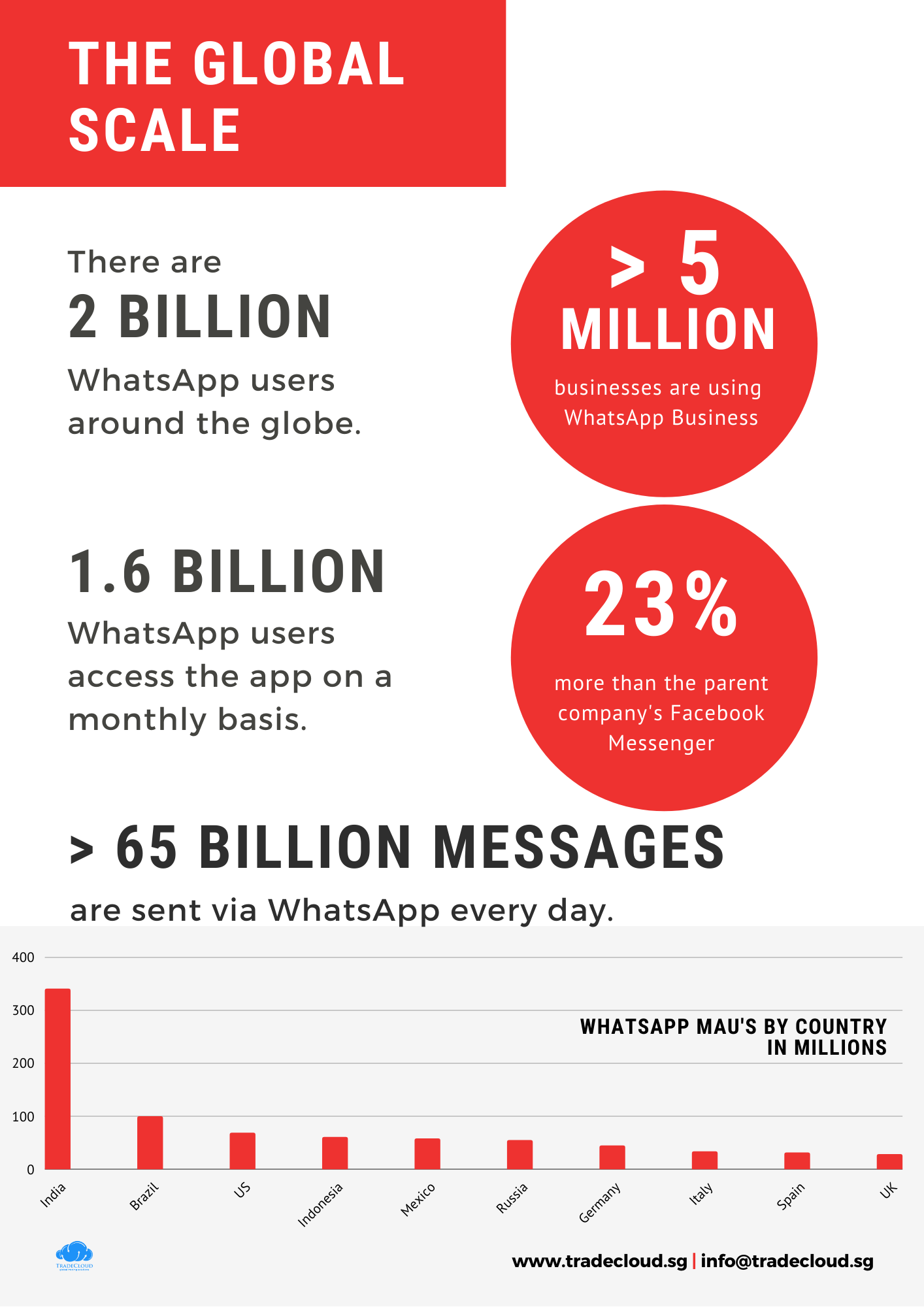
Millions of users ditch WhatsApp in exchange for Signal and Telegram, but this still does not solve the problem of using social apps for business purposes.
On January 4, 2021, WhatsApp updated its privacy policy and insisted users agree to the changes before February 8, 2021. The new updates highlighted how WhatsApp shared the data with Facebook.
With that announcement transpired a new wave of the great migration to new apps.

Let’s just say that WhatsApp has fallen victim of Facebook’s
poor privacy reputation. At the heart of this issue lies users’ main concern about the sharing of private and sensitive information with WhatsApp’s parent company.
On the other hand, WhatsApp claims that the update has nothing to do with our private chats or profile data, and instead the change is designed to outline how businesses who use WhatsApp for customer service may store logs of its chats on Facebook servers.
But with that assumed simplification, not relieved by Facebook’s appalling track record on privacy and its reputation for confusing changes to its various terms of service agreements — consumers and organisations across the various industries felt a sudden threat to their privacy and data security.
It resulted in a full-blown backlash and made its users flee to competitors like Signal, Telegram and other platforms that are seemingly safer.
NETIZENS REACT
Speaking of which, many companies and their leaders jumped into the battle. With India being a prime market for WhatsApp, accounting for more than 400 million users — prominent business tycoons like Mahindra Group Chairman Anand Mahindra, PhonePe CEO Sameer Nigam and PayTM Founder Vijay Shekhar Sharma also asked their followers to move to alternative platforms.
Tesla CEO Elon Musk has even tweeted ‘Use Signal’ to his more than 42 million followers.
This sudden wave of panic on social media platforms made WhatsApp team deploy their own resources.
In a desperate bid to convince the consumers and clarify its privacy policies, WhatsApp put out status updates for all its Indian users on January 17, saying ‘We are committed to your privacy’. The statuses claimed that WhatsApp could not read or listen to any personal conversations ‘as they are end-to-end encrypted’, subtly implying that it will not be shared with Facebook.
However, the very fact that ‘it was able to share the status updates with all, raised eyebrows online! Within minutes, #WhatsAppStatus trended on Twitter with some hilarious takes.


Another factor in this debacle is the complex language used to explain the data sharing process with Facebook, driving many to believe the new mandated data sharing is a change that will not be avoided.
“As part of the Facebook family of companies, WhatsApp receives information from and shares information with this family of companies”, reads WhatsApp’s new privacy policy. “We may use the information we receive from them, and they may use the information we share with them, to help operate, provide, improve, understand, customize, support, and market our Services and their offerings.”
All this time WhatsApp was singing the glory of its end-to-end encryption of users’ chats and calls. But with updated terms of service, WhatsApp intended to share private and confidential information such as email address, phone number, profile name, business-specific information, and location information with Facebook.
In a recent full-page advertisement across print media, the company also announced the delayed implementation of new norms owing to alleged misinformation and confusion.
To see people moving to alternatives like Signal or Telegram is not surprising — especially when they feel they can no longer trust what is really happening in the backend when they send simple messages via their smartphones.

It’s not just the private user who is worried about WhatsApp’s privacy policy changes. Businesses that use WhatsApp’s application programming interface, or API, to reach customers and deliver sensitive documents are highly alerted and concerned about the changes.
Despite obvious risks of data theft and misuse, many companies regularly share private information such as financial statements, travel details, heath documents or shopping records. WhatsApp Business is a house-hold name for major corporations for its ease of access and popularity among their end consumers. Now with changes in policies that are not only hard to understand but also to believe both business and consumers are feeling the same threat of their private data and sensitive information being leaked or stolen.
Social media was never designed for business. This is why we built a communications tool specifically for the commodities industry.

THE SOLUTION
A trusted and secured communication channel that is convenient and accessible at any time from anywhere on any device with total security. An alternative to open messaging platforms that brings all the benefits to businesses but mitigates the risks of a privacy break.
Luckily, there are a few solutions ready in the market — one of which is available via TradeCloud.
At TradeCloud, our goal was to build a communications platform specifically for the commodities industry. It was designed to be simple, smart, secure, compliant, and trusted. Having a chat system that could satisfy these five criteria was always a must.
With this clear vision in mind, TradeCloud Chat came to be with all the benefits of a freeware — but in a secured, professional set-up.

Follow us on Linkedin for market intel.
Let’s Chat Business — Book A Free Demo.
About The Author
CEO & Co-Founder of TradeCloud, Director of EdgePetrol, and an investor in several technology-based startups. Simon was formerly head of Metals & Minerals trading for Trafigura, as well as being a member of Trafigura’s management board. Simon has over 30 years’ experience in the commodities trading business; complimented with broad product and regional experience.
About TradeCloud
At TradeCloud, we know that the commodities industry needs a secure communications platform bringing trusted parties together to carry out business. We are enabling communications with cutting-edge technology that gives our customers improved Visibility, Efficiency, Compliance, Collaboration and Security compared to their traditional communications channels. Built by people who truly understand the physical commodities business TradeCloud is a secure network of trusted parties enabled to find and execute the optimal Trade. Established in 2016, TradeCloud has more than 500 member companies across more than 60 countries. TradeCloud Commodities Web using cloud computing, and blockchain technology connect post-trade services such as freight, finance, and risk management and is driving unparalleled digital change across the physical commodities industry. Write to us at info@tradecloud.sg or visit www.tradecloud.sg to know more.
